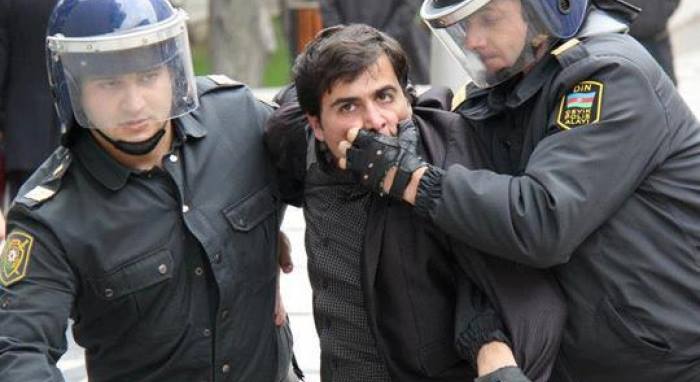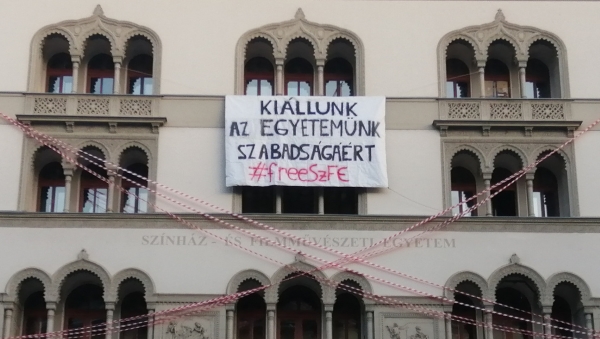THE GOVERNMENT’S RHETORIC REGARDING THE REFUGEES
The “National Consultation on Immigration and Terrorism” and the associated “informational” campaign conducted during the first half of 2015 should be seen as a direct preparation for the quota referendum. It has been the explicit purpose of both the consultation and the referendum to provide legitimacy for some future, as yet unspecified measures of the government and to represent these as expressing the unanimous will of the electorate. To achieve this, the so-called informational campaigns, the one that groomed the public for the consultation in 2015 and the other that has been leading up to the referendum at present, appeal to people’s fears and prejudices. They merge the issues of immigration and terrorism, criminalize asylum-seekers by consistently referring to them as illegal immigrants, and they draw a sharp contrast between national interests and the European Union – the leading caption of the 2016 campaign saying “We must send a message to Brussels that they will understand”. The propaganda campaign messages, masquerading as public service announcements, repeat and reinforce stereotypes and prejudices about immigration and refugees, feeding moral panic and intensifying pre-existing xenophobic sentiments and generating hysteria. As documented by multiple surveys, the government’s rhetoric has the effect of increasing the Hungarian public’ xenophobia.
THE BILLBOARD CAMPAIGN ON THE QUOTA REFERENDUM
The government has been preparing for the referendum since July 2016 with a new round of billboards and TV spots. The government’s campaign had even started prior to the official campaign period. The question of the legality of the government’s engaging in campaigning and the content of its messages has been referred to the National Election Commission (NEC) and the Supreme Court that is in charge of reviewing the legality of the NEC’s decisions. The Supreme Court has ruled that the government’s campaign is protected by the freedom of expression. This claim makes no sense from a constitutional point of view: using inverted logic, the Supreme Court invokes the notion of fundamental rights that are meant to protect citizens from the abuses and overreach of the state in order specifically to defend state actions. However, formally speaking the state is not the subject of fundamental rights, and thus of the right of free expression, and for this reason the court reasoning is untenable. It is a minimum standard of the rule of law that the actions of state agencies are constrained by the law. Public authority may be exercised only within the constraints of the law; therefore, the government’s role in the campaign must be grounded in one of its constitutional functions and competences. In other words, state actions are not exercises of rights but performances of state obligations. With respect to protecting fundamental rights, the state’s obligations include the promotion of the exercise of rights. In the context of the quota referendum, the right of citizens to access information implies the government’s obligation to provide factually correct information. This does not ground the freedom of expression of the government. As the initiator of the referendum, the government’s actions do not constitute exercises of liberties, but rather performs certain powers, as an organ of public authority, as established in the Fundamental Law. Consequently, the limits of its freedom of expression are different from those that apply to citizens. With respect to the government, the communication of factually false claims cannot be justified on the basis of the freedom of expression because that would violate its obligations to provide information as discussed above. Furthermore, the government’s normative value claims are also subject to legal scrutiny, because it is the government’s constitutional obligation to protect and uphold the values of constitutionalism, the rule of law, democracy and human rights. The government is not permitted to express political viewpoints, such as those that are contrary to human dignity and equality, which undermine ideals.
REFERENDUM IN THE ILLIBERAL STATE
The entire mode of operation of the illiberal state is contrary to that of liberal democracy, with necessary and important implications for the role and significance of the practice of referenda. Given the remnants of media and political pluralism, the illiberal state cannot operate through open repression and must beware the state and changes of the public opinion. It is under constant pressure to demonstrate that a large majority is supporting its actions, and that its critics constitute a marginal minority acting contrary to the national interest as agents of foreign powers. Therefore, it operates through permanent campaigning: it holds “consultation” and “referenda” on highly deceptively worded questions where a majority of its favored answers can be guaranteed, while at the same time preventing popular initiatives by independent actors. In this broader context, the manipulated results that emerge from the referendum are not constraints on the power of the state but, to the contrary, mere means of the power of the illiberal state.
UNLAWFUL BALLOT QUESTION
From a legal point of view, the question that appears on the ballot violates applicable legal and constitutional requirements, and therefore should not have been approved in the first place. The question is unlawful because only such issues may be decided through referendum that are within the competences of the Parliament; however, the Parliament may not bind the government’s actions in the matter of refugee policy. The government is that agency of the state that has a central role in developing, determining and representing the Hungarian position in the European Union, because Hungary is represented by its prime minister in the European Council, and by the ministers in charge of the relevant areas in the Council of the European Union. The government itself determines the Hungarian position that is to be upheld in the European Union, and it is the body that is to be held accountable for that. The ballot question falsely suggests that the Parliament’s position could constrain the Government’s actions in this regard. Whatever its upshot, the referendum cannot legally limit the government’s options.
Furthermore, the ballot question is also ambiguous, as its wording fails to reveal the target of the initiative. Does it target Council Decision 2015/1601 adopted in September 2015, or some future measure? The wording is so general that the government may take it as a blanket authorization in case of a successful referendum.
CITIZENS’ POLITICAL OPTIONS AT THE REFERENDUM
Till October 2, voters must consider the humanitarian and international legal obligations of the community of Hungarian citizens towards the victims of the refugee crisis. They must consider the different options with a view to their impact on the idea of a shared European community and its institutional repository, the European Union, which is still overwhelmingly being supported by the public.
Those who feel that it is their moral obligation to vote “yes” risk becoming mere tools of the illiberal state, because even though the “yes” votes will certainly be in the minority, they still increase the chances of a valid referendum. In addition, the “yes” vote is also legally ineffective and pointless, since the Parliament cannot legally bind the government’s hand to uphold a specific position in the EU procedures, as the government is free to determine its own position.
Those who are inclined to vote “no” but do not support the government’s campaign of hate risk appearing to approve that very campaign through their vote. Furthermore, their “no” vote gives blanket political authorization to those in power, since it is legally unclear what the Parliament is supposed to do if the “no” vote is in the majority. Regardless of their specific intentions, those who vote “no” give support to the government’s campaign to weaken the European Union as well.
It is important to stress that the referendum may have reverberations not just within Hungary but also across Europe. Inevitably, the Hungarian referendum is being observed and understood in the context of the recent “Brexit” vote, and a high-turnout win for “No” could be seen as a step in the direction of “Huxit”, regardless of anyone’s motives. It will be seen as yet another evidence of the rising tide of rightwing Euro-skepticism and the existential crisis of the EU, potentially creating a self-fulfilling narrative. More specifically, a high-turnout “No” win will be seen not just as a rejection of the quota plan but as undermining any collective effort to deal with the refugee crisis, and might undermine the determination of those governments that are still willing to work on equitable solutions. It will send the message that some member states care only for the advantages offered by the EU but want nothing to do with sharing its burdens, thus weakening solidarity and the sense of community across Europe without which the EU as an institution cannot properly function.
It is an act of civic responsibility to deliberately abstain from voting, or to cast an invalid vote. In this manner, citizens can avoid contributing to the success of the referendum, and instead of answering a deceptive question they can express that they reject the stigmatization of refugees and the incitement against the European Union. This way they can also voice their wish that we should have real, meaningful debates about the refugee crisis instead of incitement of hatred and fear.
Contributors: Eszter Kiss, Nóra Köves, Domokos Lázár, László Majtényi, Zoltán Miklósi, Emese Pásztor, Bernadette Somody, Virág Zsugyó
Budapest, 13 September 2016.
The English summary of the study can be downloaded here:






